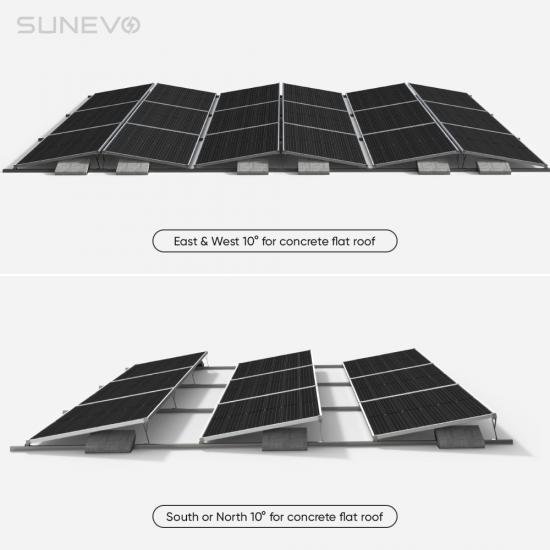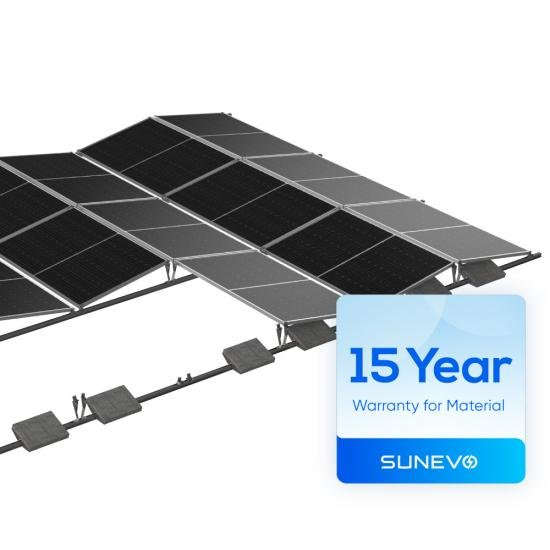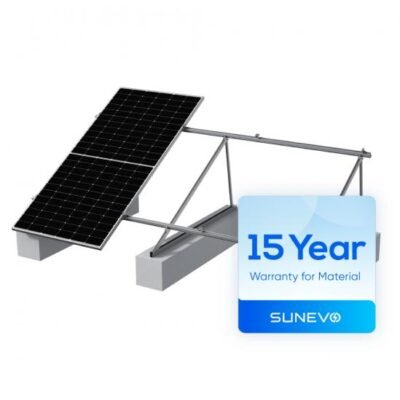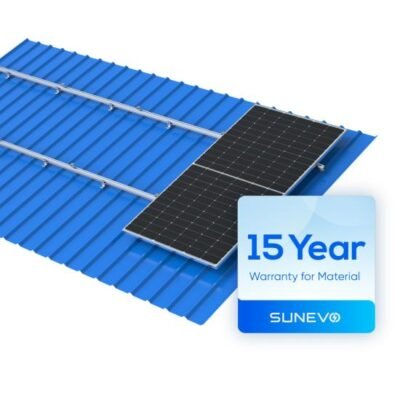
Sunevo Customized Solar Panel Ballasted Flat Roof Mounting Structure Systems
A ballasted mounting system refers to a non-penetrating solar panel installation solution, where the weight of the components secures the PV panels in place without the need for drilling or trenching. Typically, this system utilizes a combination of concrete blocks, rails, clamps, and ballast brackets to hold the solar panels securely on the roof or on the ground.
- Brand:SunEvo
- Installation Application:Ballasted Roof Rack System
- PV Module Layout:Portrait or Landscape
- Wind Load:44m/s or Customized
- Snow Load:1.6KN/m2 or Customized
- Inclination:Parallel to the roof
- Product categories
how can we help you
Description
Sunevo Solar Panel Ballasted Mount Bracket Flat Roof Mounting Structure Systems
The Ballasted solar panel system is a type of mounting system suitable for concrete flat roof and trapezoidal sheet metal roof. Unlike other mounting methods that require penetrating the ground with foundations or piles, the ballasted system relies on the weight of the system components to keep the solar panels in place.

Technical Features of Ballasted Mounting Systems:
| Product name | MRac Ballasted Mounting System |
| Installation Site | Flat/slope roof, Flat ground, Membrane roof |
| Roof Type | Flat concrete roof, Slope concrete roof, Membrane roof |
| Tilt Angle | Max 15° |
| Wind Load | <44m/s |
| Snow Load | 1.6KN/㎡ |
| Applicable Solar Module | Framed |
| Panel Layout | Landscape |
| Material | AL6005-T5,SUS 304, EPDM |
| Finish | SUS304 &Zinc-Nickel Alloy Electroplated Steel |
| Module orientation | Landscape |
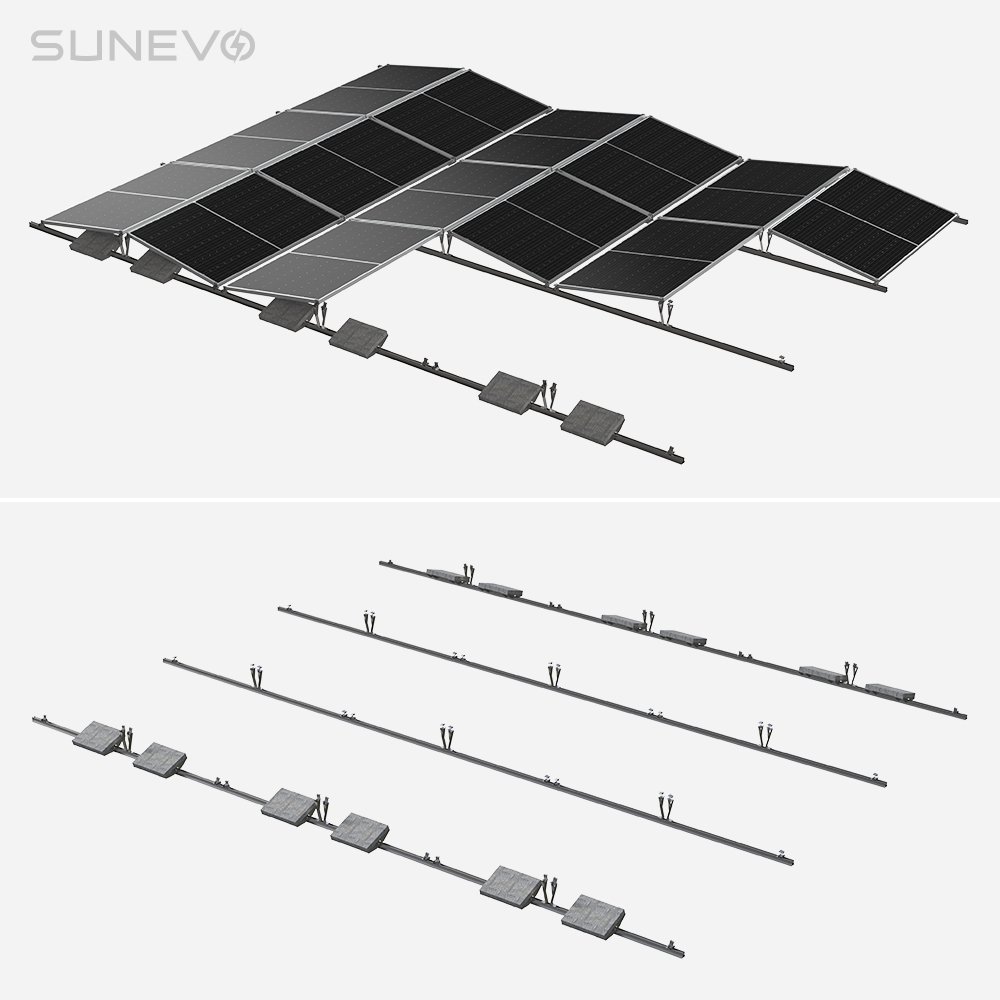
The Installation Processes of Ballasted Roof Mounting Systems
The installation process for a ballasted mounting system typically involves the following steps:
1. Roof Preparation: The roof surface should be inspected to ensure it is structurally sound and capable of supporting the weight of the system. Any necessary repairs or modifications may need to be made before installation.
2. Layout Design: The layout of the solar array is planned, considering factors like available roof space and optimal tilt and orientation for maximum sunlight exposure.
3. Mounting Rails Installation: The mounting rails are attached horizontally to the roof. They are normally secured using ballast blocks positioned strategically to evenly distribute the weight.
4. Solar Panel Attachment: The solar panels are affixed to the mounting rails using end and mid clamps. The electrical wiring between the panels is also connected.
5. Final Checks: The system is inspected to ensure proper alignment, secure attachment, and that all electrical connections are in place and functioning correctly.
6. Ballast Placement: The ballast blocks are carefully positioned on the mounting rails to provide sufficient weight and stability to the system.

How To Choose The Proper Ballasted Mounting System?
There are many different types of customized ballasted mounting systems, such as dual tilt type, East & West design type, South or North design type, and even wind-proof type,etc. Therefore, it’s very important to know how to choose a proper ballasted mounting system.
When selecting a ballasted mounting system, consider the following factors:
–Weight requirements: Determine the weight needed to securely hold the panels in place based on wind loads and other environmental factors.
–Compatibility: Ensure the system is compatible with the solar panels you intend to install.
–Installation simplicity: Look for systems with straightforward installation processes and easy-to-use components.
–Structural integrity: Verify the system’s structural integrity and resistance to weather conditions, such as high winds or snow loads.
–Compliance with regulations: Ensure the system meets local building codes and regulations.
Remember to consult with a professional solar installer or engineer to assess your specific requirements and design a ballasted mounting system that meets your needs.

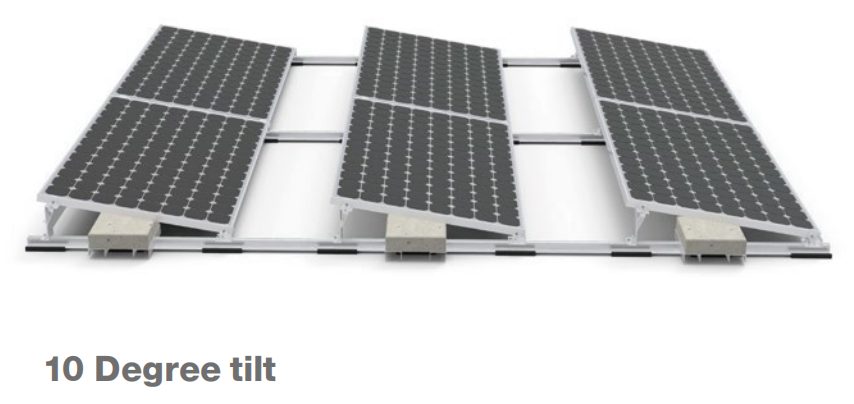
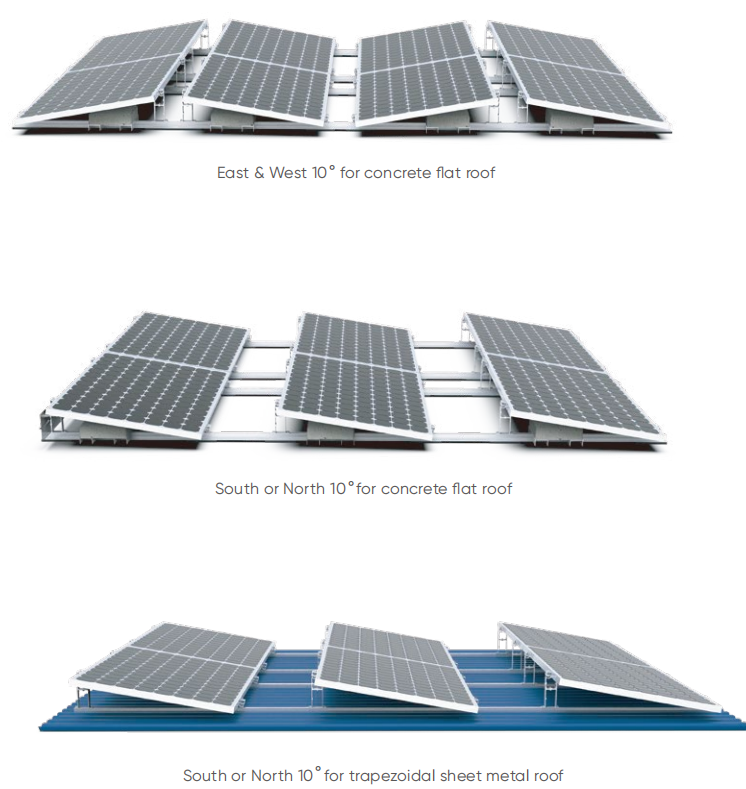
Package of Rack Mounting
Box or Crate Packaging: The individual packaged components are placed in suitable boxes or crates for consolidation and transportation. These boxes or crates are designed to withstand the rigors of shipping and handling, providing secure and organized packaging.
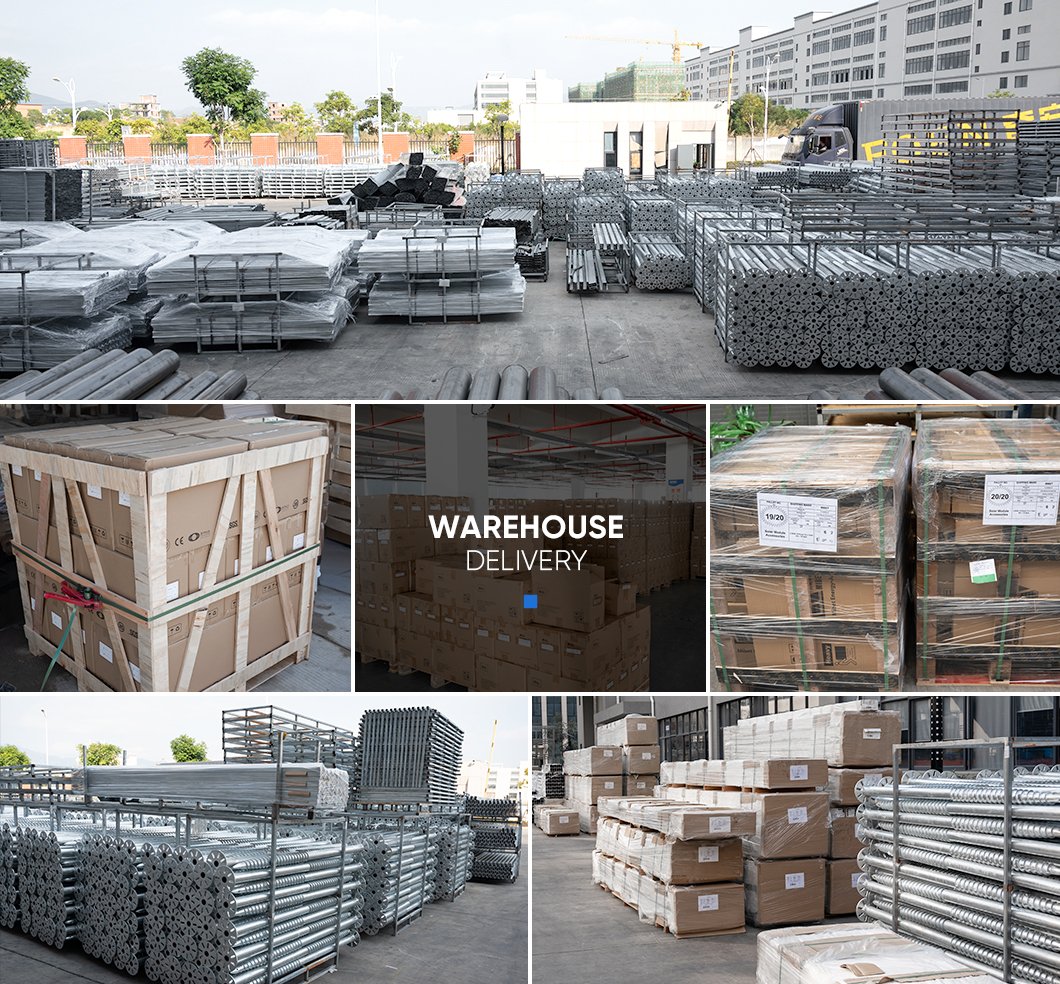
Related Tags:
Leave A Message
If you are interested in our products and want to know more details,please leave a message here,we will reply you as soon as we can.
Subject :
